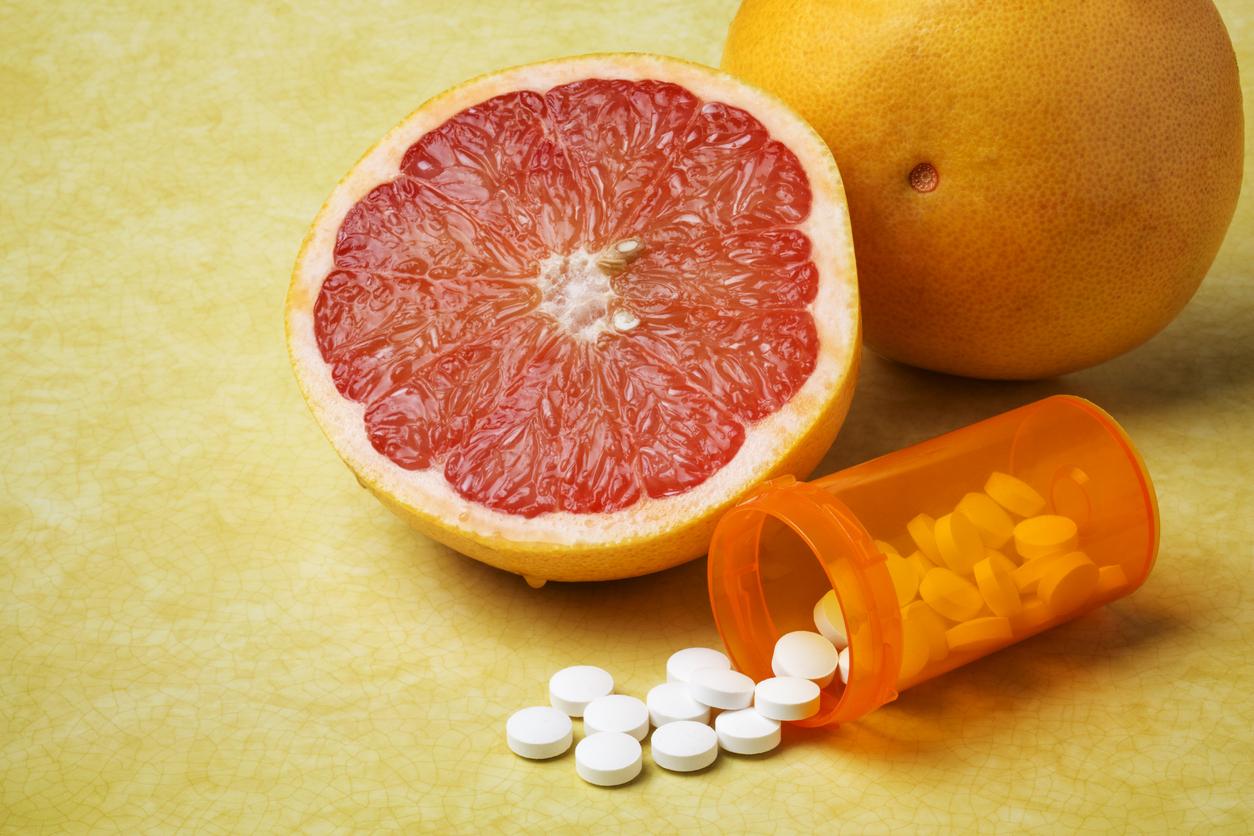Grapefruit has been known for years to affect the metabolism of “many drugs” with serious adverse effects sometimes observed, this review points out in its September issue.
Dozens of drugs are affected by these interactions with grapefruit. Among these: statins against cholesterol, benzodiazepines (tranquilizers), immunosuppressants (inhibitor of the immune system) or even calcium channel blockers, substances used to treat heart trouble.
“The seriousness of the few published observations is in itself a good reason not to consume grapefruit, in particular grapefruit juice, during a drug treatment”, judges the review in a press release.
Many substances present in grapefruit have been implicated. According to certain hypotheses, the fruit would cause the inhibition of enzymes which usually metabolize drugs, leading to the risk of overdose.
In other, rarer cases, on the contrary, a decrease in the concentration of medicinal substances in the blood is observed, which affects the effectiveness of the product.
Grapefruit with serious side effects
The adverse effects observed can be serious: muscle destruction (rhabdomyolysis), acute renal failure, disabling tremors, hemorrhagic shock, with “sometimes a fatal evolution”, according to the review.
More recent work indicates that other fruit juices, especially orange juice, could also expose people to adverse drug effects, according to this review known for giving independent evaluations of new drugs.
However, interactions with food, when they exist, are clearly indicated in the instructions.

















